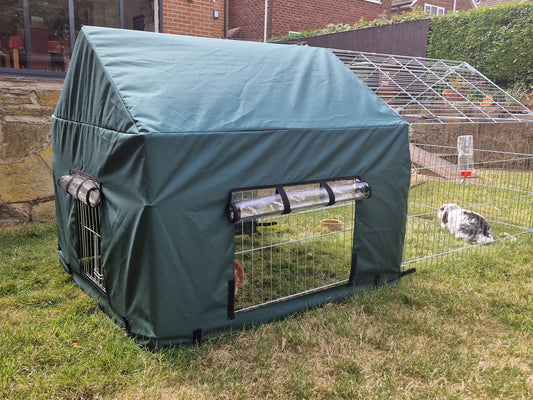By Karen Cornish
International Assistance Dog Week (IADW) begins on the first Sunday of August every year. The aim of the week is to raise awareness of the wide range of roles that assistance dogs have and the ways in which people with disabilities rely on them for independence.
These are some UK organizations training assistance dogs registered with Assistance Dogs UK (assistancedogs.org.uk).
Autism Dogs (autismdogs.co.uk)
Trainers train autism assistance dogs to perform tasks that help their handlers cope with the challenges they face. These can include helping to manage a person’s anxiety and facilitating social interaction. The companionship and security that autism assistance dogs provide enable their handlers to grow in confidence and improve their social skills.
Trainers train dogs to meet the individual handler's needs, and they can teach them special skills such as:
· medication reminders
· deep pressure therapy
· picking up dropped items
· retrieving important items
· self-harm interruption
Canine Partners (caninepartners.org.uk)
Canine Partners trains assistance dogs to help adults with physical disabilities to live more independent lives. People choose dogs to fit their lifestyle and needs. They learn to do tasks that might be hard, impossible, or painful for someone with a disability. Canine Partners dogs help people by giving them confidence, companionship, and security, and they also reduce the need for human caregivers.
Canine Partners trains dogs to perform the typical everyday tasks.
· helping with undressing
· loading and unloading the washing machine
· retrieving or picking up dropped items
· retrieving money and card from a cash machine
· opening and closing doors
· pressing the button at a pedestrian crossing or lift
· fetching help in an emergency
Guide Dogs (guidedogs.org.uk)
Guide Dogs trains dogs to assist blind and partially sighted people, helping them live confidently. Dogs and humans team up. Humans give commands and support, while guide dogs follow instructions to stay safe.
Throughout training, a guide dog learns to:
· walk centrally along the pavement whilst avoiding obstacles
· stop at kerbs and steps
locate doors, crossings, and places.
· judge height and width so a person does not bump their head or shoulder
The dog helps someone cross the road. However, it is up to the person to decide when and where to cross safely.
Hearing Dogs for Deaf People (hearingdogs.org.uk)
Hearing dogs play a vital role in alerting individuals with hearing impairments to crucial sounds. These intelligent canines recognize doorbells, phones, and alarms, alerting their handlers by gentle nudges. With their companionship and unwavering support, hearing dogs also combat isolation and build confidence.
Medical Detection Dogs (medicaldetectiondogs.org.uk)
Medical Detection Dogs train assistance dogs to detect the odour of human disease. Dogs learn to detect small odor changes before a health crisis and warn people to prevent it. Medical alert dogs help people with their condition, reducing emergency calls and hospital visits, and giving them more independence and confidence.
These medical alert dogs are currently working for people with:
· Postural Orthostatic Tachycardia Syndrome (PoTS)
· Addison’s disease
· Severe allergies
· Type 1 diabetes
· Other endocrine disorders
Service Dogs UK (servicedogsuk.org)
Service Dogs UK trains dogs to help armed forces and emergency services with PTSD. Instructors teach veterans how to train specially selected rescue dogs, creating a mutually beneficial relationship.
Dogs can draw out even the most isolated people and help them to overcome the symptoms of PTSD. Through an assistance dog, veterans develop new ways to communicate without anger or paranoia.
PTSD support dogs are trained to:
· recognise the signs of a traumatic flashback or nightmare and disrupt them
· lead a person to safety in an emergency
· ease the symptoms of hypervigilance by performing room searches
· help calm anxiety attacks by redirecting a person’s focus on to them
Support Dogs (supportdogs.org.uk)
Trainers train support dogs to help people with physical disabilities, children with autism, and adults with epilepsy.
Disability assistance dogs are trained to:
· open and close doors
· pick up objects
· raise an alarm
· operate control buttons
· load and unload a washing machine
Trainers train autism assistance dogs to:
· keep a child safe using methods to reduce the risk of injury or distress
· provide comfort for autistic children
Seizure alert dogs are trained to:
Give a completely dependable alert 50 minutes before a seizure begins, allowing someone to move to a safe location.
How you can help
Assistance dog organisations are often looking for volunteers to help with their valuable work. As charities, they rely on the generosity of donors to fund them. There are lots of different roles available for volunteers and you don’t have to be a dog expert to help. Contact the individual organisations via the contact details on their websites to find out how you could help.









